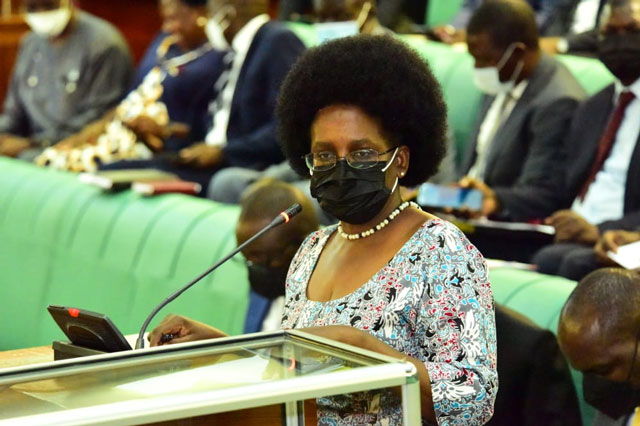The Ugandan government has recently come under fire for approving a substantial investment of Sh5.5 billion of taxpayer funds into Great Lakes Coffee (GLC), a foreign-owned company facing severe financial struggles.
The decision has triggered public concerns about financial accountability and transparency, especially given GLC’s financial instability and the allegations of public fund misappropriation associated with this case.
GLC’s Financial Crisis: Mounting Debts and Receivership
Great Lakes Coffee (GLC), a company primarily owned by Cypriot nationals, has accumulated debts totalling over Sh69.26 billion.
Documents reveal that the company owes creditors Sh12.68 billion and $15.38 million (equivalent to Sh56.57 billion) and is currently under receivership.
Additionally, GLC faces unpaid National Social Security Fund contributions for its employees, exacerbating its financial crisis.
Government Involvement: Approval of Funding Through the Ministry of Science, Technology, and Innovation
The Sh5.5 billion allocation to GLC was approved through Uganda’s Ministry of Science, Technology, and Innovation.
Dr. Monica Musenero, the minister, confirmed the decision, though no funds have yet been transferred. Musenero assured the public that the allocation was legitimate, emphasizing Cabinet approval.
Citizen’s Petition and Allegations of Misuse
A Ugandan citizen has filed a petition with the Inspector General of Government (IGG), requesting an investigation into why taxpayer money is being used to support a financially unstable foreign-owned company.
According to the petitioner, GLC may be a vehicle for misappropriating public funds.
External Investors Step In, Proposals from International Corporations Finance Limited and Waganda Coffee
Efforts to salvage GLC’s financial situation have drawn the attention of potential external investors.
International Corporations Finance Limited (ICF), a UK-based company, proposed an investment of $8 million (Sh29.2 billion) in GLC.
In parallel, Waganda Coffee, a Ugandan entity, offered a proposal to cover GLC’s debts and end its receivership.
Waganda’s proposal detailed payments of $1.6 million (Sh5.8 billion) to the Bank of Africa and $200,000 (Sh732 million) to the Uganda Development Bank (UDB).
Counterproposals from Creditors
The creditors responded with their own requirements. Bank of Africa proposed a full settlement of $2 million (Sh7.3 billion), and UDB requested full payment of its debt.
Following discussions, both banks agreed to a revised proposal, with the condition of specific down payments due by November 17, 2023.
However, the stipulated payments remain outstanding, prolonging GLC’s financial instability.
Third-Party Investors and Updated Payment Plans
In October 2023, GLC shareholders announced that they had secured funding from third-party investors.
They submitted an updated payment proposal, offering Bank of Africa $2 million and UDB $1.3 million, with detailed instalment plans.
The banks agreed to the revised payments, and additional terms were set for continued operations and receivership.
However, non-payment by the November 17 deadline threatens further enforcement action and potential asset liquidation.
Company Background and Ownership Structure
GLC, established in 1999 with a capital of Sh375,000, operates in coffee milling, processing, and export.
The company is owned by Cypriot nationals, with a majority share held by Aristotelis Nicolaides. GLC’s shareholders include Aristotelis Nicolaides (150 shares), Konstantinos Stamos (75 shares), Nova Trade Limited (125 shares), Nicolaides Andreas (5 shares), and Costakis Nicolaides (20 shares).
Government Grant Conditions and Role of Sunbelt Holdings Limited
After failing to secure private funding, GLC’s board sought government assistance. On April 19, 2024, the board announced that the Ugandan government had approved a Sh5.5 billion grant, contingent upon terms outlined in the grant agreement.
GLC appointed Sunbelt Holdings Limited to manage and oversee the funding allocation, including overseeing the coffee value chain and export process.
Discrepancies in Documentation and Questions of Accountability
According to GLC records, the grant approval resolution required signatures from two company directors.
However, the document was signed by Aristotelis and Stamos, the latter being a shareholder rather than a director.
This discrepancy has raised questions regarding GLC’s internal governance and accountability.
Minister Musenero and IGG’s Responses to the Controversy
When questioned, Dr. Monica Musenero emphasized that the government’s approval was legitimate, dismissing concerns of fund misappropriation.
She suggested that citizens direct their concerns to Cabinet rather than IGG. Meanwhile, the IGG spokesperson, Ali Munira, confirmed receipt of the petition and indicated that the office would investigate the case.
The government’s controversial decision to inject Sh5.5 billion into a financially troubled, foreign-owned coffee company has spurred widespread public debate and a call for transparency.
With pending investigations and the IGG’s involvement, Ugandan citizens eagerly await further clarification on this matter to ensure accountability in public fund management.

